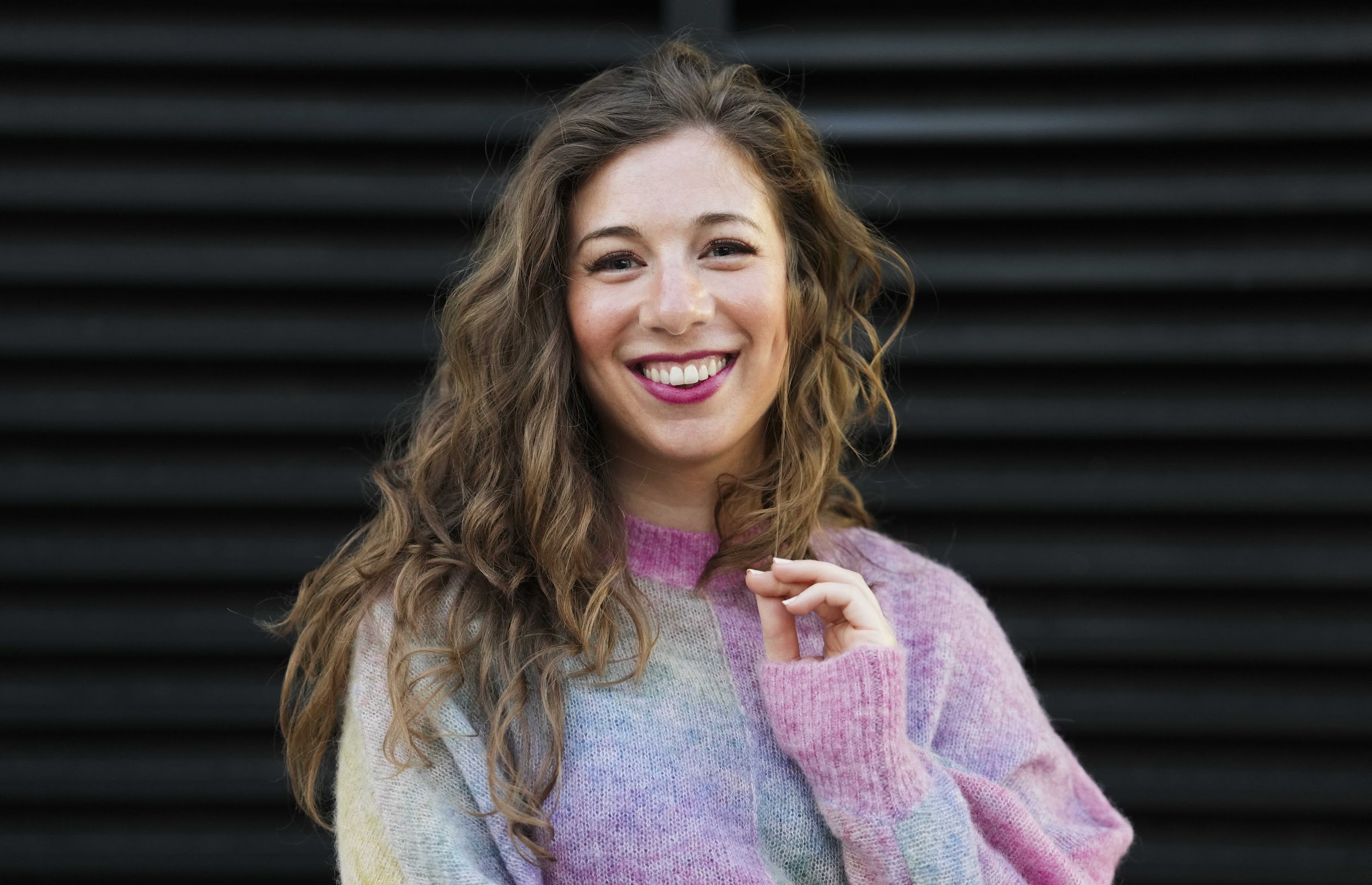Myha’la Is Thinking Big
While her 'Industry' counterpart is in a free fall, the actress is boldly entering a new phase of life, determined to take up more space in her personal and professional endeavors. Here, she breaks down the plans she's manifesting for her future.
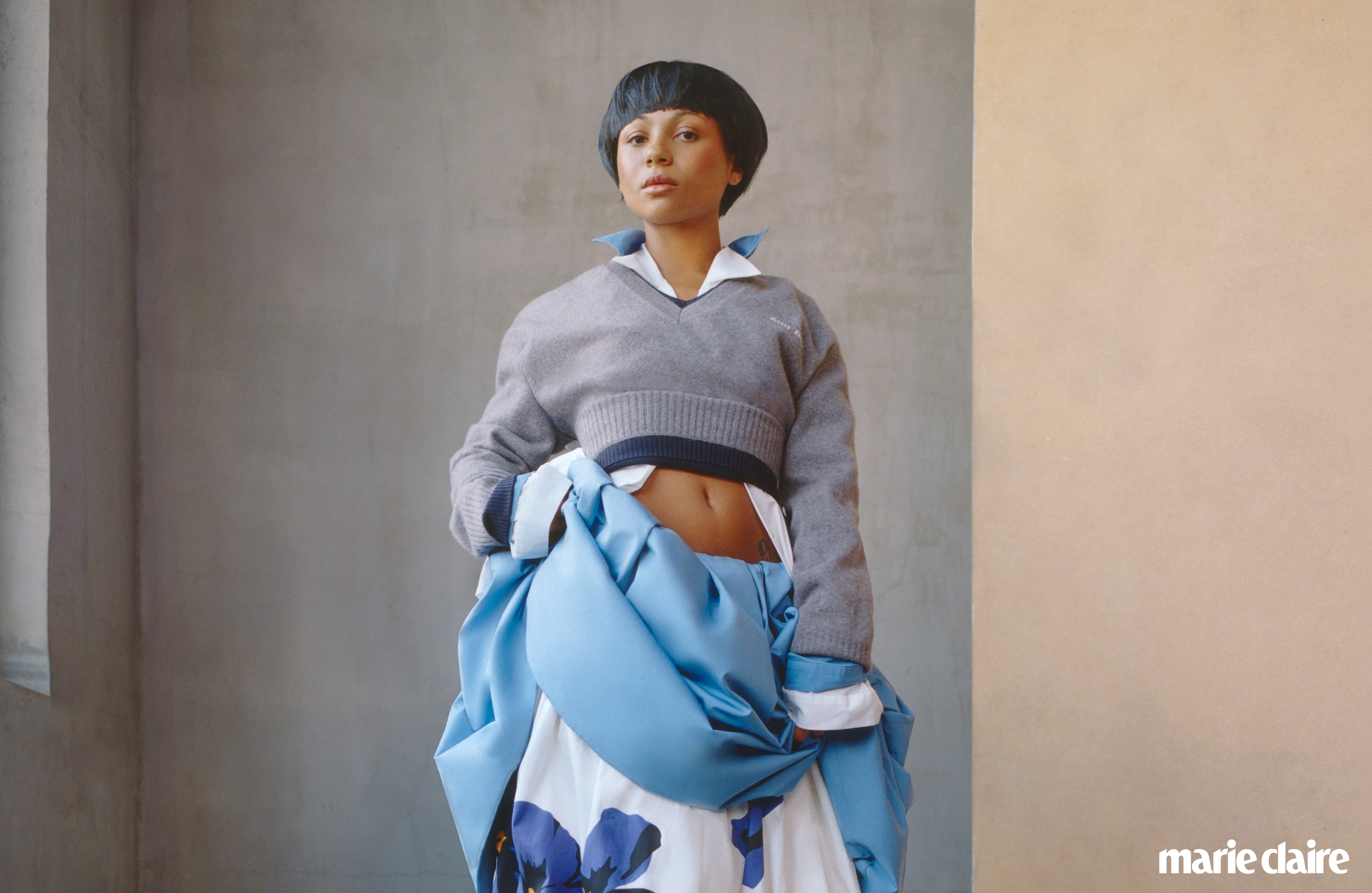

Myha’la was ready for a change: She wanted to cut off all her hair. But it was just before the actress was set to begin filming the new season of HBO’s Industry, so before picking up the scissors, she picked up the phone and called her bosses, showrunners Mickey Down and Konrad Kay. Myha’la plays Harper Stern on the intense, sexy drama set at a fictional London bank where everybody is cutthroat, conniving, and constantly on cocaine. Harper started the series as the ultimate outsider: a self-made Black American woman elbowing her way into a world dominated by wealthy, white British men. She spends two seasons deploying Machiavellian moves to secure her position, at tremendous personal cost—in her wake: torched bridges, scorched earth—only to be outed as a fraud by her mentor, who has her fired in the second season finale.
Down and Kay told Myha’la that she could do whatever she wanted with her hair. She pressed them: “Is it going to work for season three?” They assured her that it would.
Myha’la theorizes on what may have led Harper to her pixie cut. “She gets fired, and she’s having a complete mental breakdown and a crisis…So she’s drinking too much, partying too much, sleeping with strangers, going out and putting herself in precarious situations. And then she just, in a Britney moment, cuts all her hair off.”
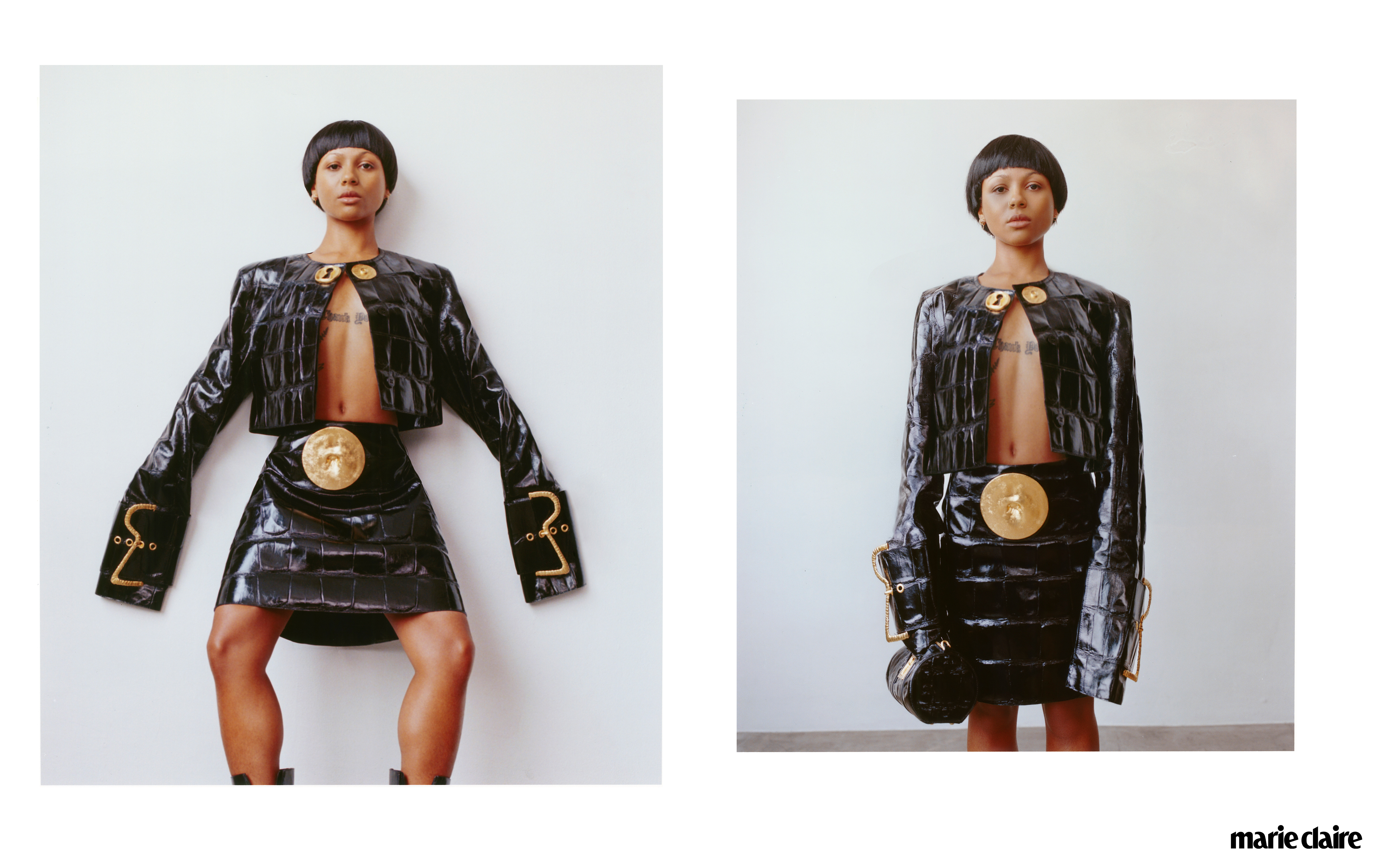
Schiaparelli jacket, skirt, boots, and bag
While musing on Harper’s implosion, Myha’la exudes a warm, relaxed energy, seated in a sunlight-drenched window seat at a tea shop in Brooklyn. She’s wearing a “Golden State Grips” trucker hat, a magenta t-shirt that reads HOT GIRL AT COMIC-CON, short shorts that expose several (but not all) of her “twenty-some-odd tattoos” and she’s carrying an olive green Miu Miu bag—a loaner-turned-gift from the brand. We’re not far from where Myha’la lives with her fiancé, actor Armando Rivera. The two met after he slid into her DMs in late 2020 to profess his admiration for Industry. (Crown him the King of Shooting Your Shot.)
Myha’la, 28, is in a contented, even giddy place—quick to smile and down to laugh so hard she nearly chokes on her Osmanthus Oolong latte—but season three of Industry, which premieres August 11, finds Harper in her idea of hell. She’s working as a lowly assistant at FutureDawn, the self-proclaimed ethical investment fund, where the office energy is very—how do I put this? It feels like The Wing? Lots of sweater vests and flats. Like definitely everyone who works there has a Notorious RBG tote bag.
The faux-do-gooder-ism of FutureDawn is as repellent to Myha’la as it is to Harper. “Honestly, I'll pick the assholes who know what they're doing over the people who are like, ‘I'm here to change the industry from the inside out.’” Myha’la raises her eyebrows and drops her voice. “Bitch, no, you're not.”
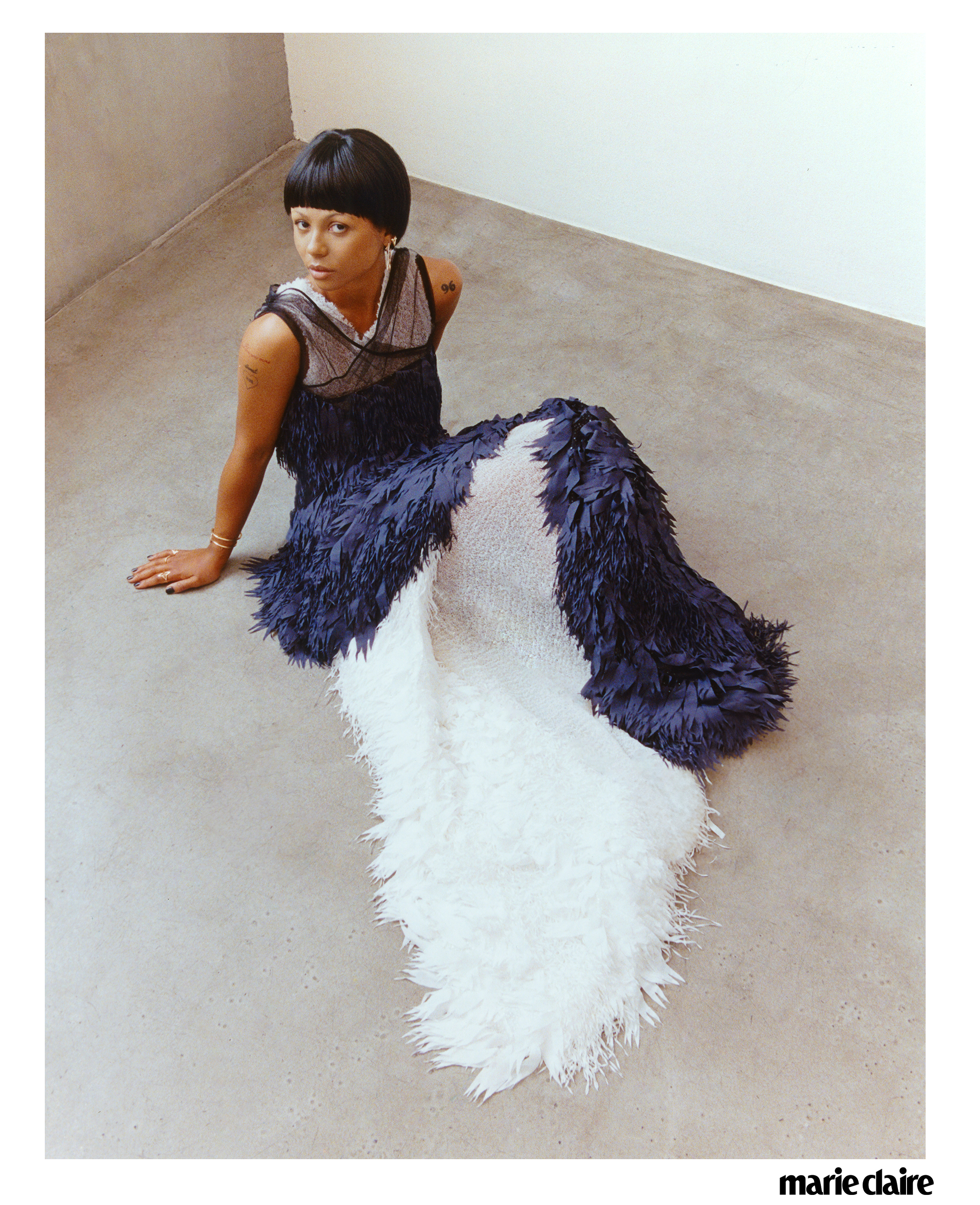
Louis Vuitton dresses; Louis Vuitton Fine Jewelry bracelets and rings
In another show, Harper would be a scrappy, can-do heroine. But Industry is disinterested in that sort of feel-good pablum, and Harper is an anti-hero leaning so hard on the anti that she frequently veers into villainy. Harper is described, by her colleagues, friends, and even her family, as “sociopathic” and a “narcissist” and “the most selfish fucking person I’ve ever met” who is “not capable of actual love.” She’s kind of like Tony Soprano—ruthless, astute, prone to anxiety attacks—except, unlike Tony, Harper refuses to go to therapy.
Get exclusive access to fashion and beauty trends, hot-off-the-press celebrity news, and more.
What really drives Harper, Myha’la says, is “she’s got something to hide. She’s got a secret, and by all means necessary, she's keeping it.”
Lena Dunham, who directed the Industry pilot, was blown away by Myha’la, as a person and a performer, from the get. “I was stunned by how quickly Ha'la was able to find her character, find her confidence and not just be on a set but lead a set,” Dunham shared in an email. “She is incapable of a false move, and it elevates everyone else's game, and while that is often true of movie stars, it is not often true of 22-year-old recent college graduates who have flown across the ocean to take on a new role.”
Dunham adds: “She could have easily been psyched out by the pressure. But she has the skills of an actor and the mindset of an elite athlete, in that pressure and intensity seem only to feed her focus and resolve.”
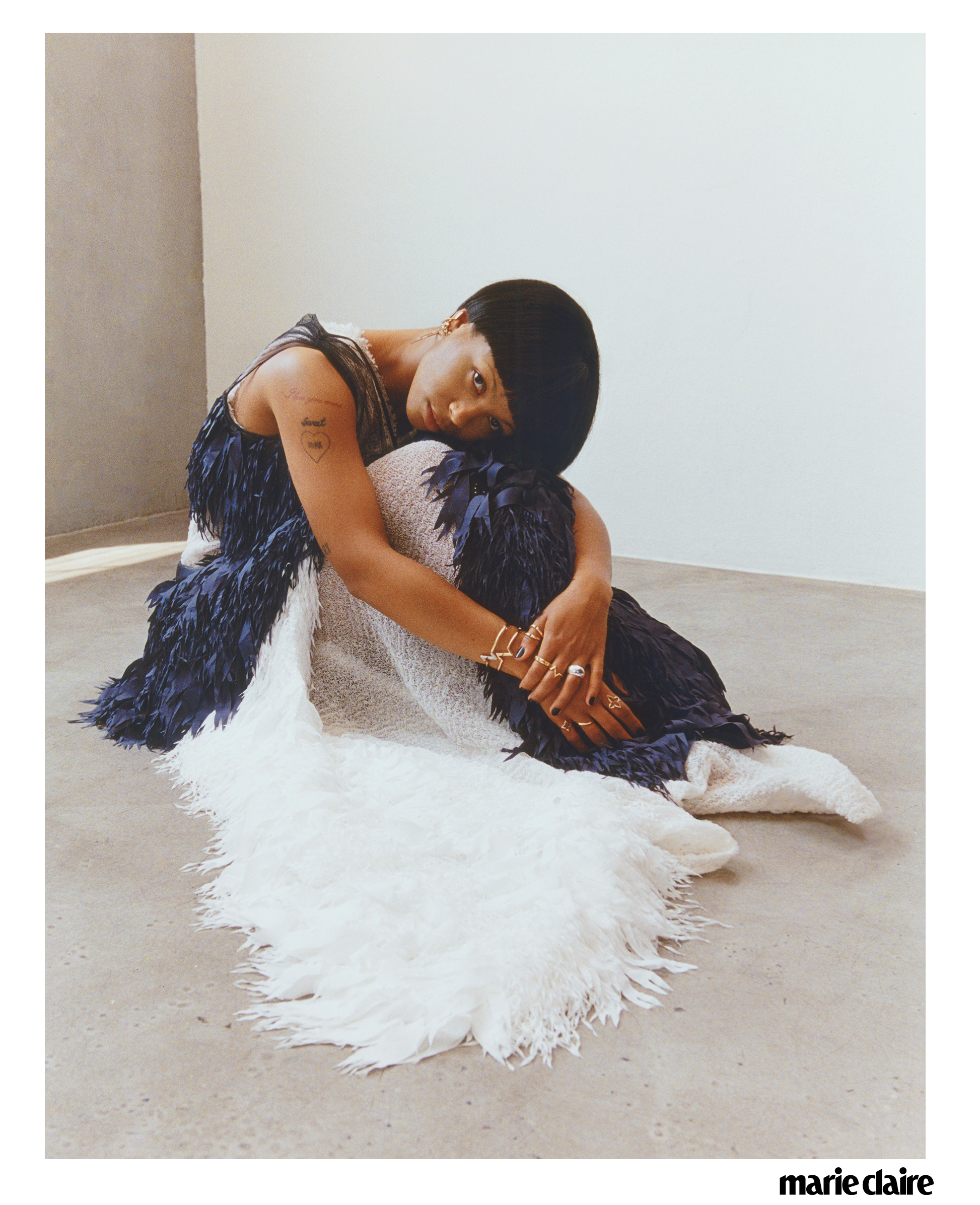
Given license by Down and Kay to adjust anything about Harper that didn’t feel true to her, Myha’la removed any outward signs of Harper’s anxiety. Myha’la's mom always told her never let them see you sweat; Harper, Myha’la was convinced, would keep her nerves to herself. “As a small woman, as a Black person in America, as a theatrical human being, sometimes I understood that if I was just being myself, people are inherently going to look at me and not take me seriously,” she says.
Myha’la is 5-foot-one and accustomed to certain indignities: being asked at the airport if she is traveling alone, getting lifted off the ground by people who hug her. “I can't walk in a space and be like, ‘I'm not feeling super confident today,’” she says. “You don't want to ever give anybody the idea that you're not capable. As women particularly, I feel like we have to come in there and bust balls or else nobody's going to listen to us.”
As Dunham explains it: “It's easy to be intimidated, especially playing a female character, by the idea of someone who makes ‘unlikable’ choices. I loved that Ha'la never seemed to judge Harper. She didn't think ambition was a dirty word, or something a woman should apologize for having, and so she wasn't afraid to play a female character who doesn't have ‘feminine’ drives.”
Or in other words, as Harper puts it in the third episode of this new season: “I prefer the kind of feminism where women can be cunts.”
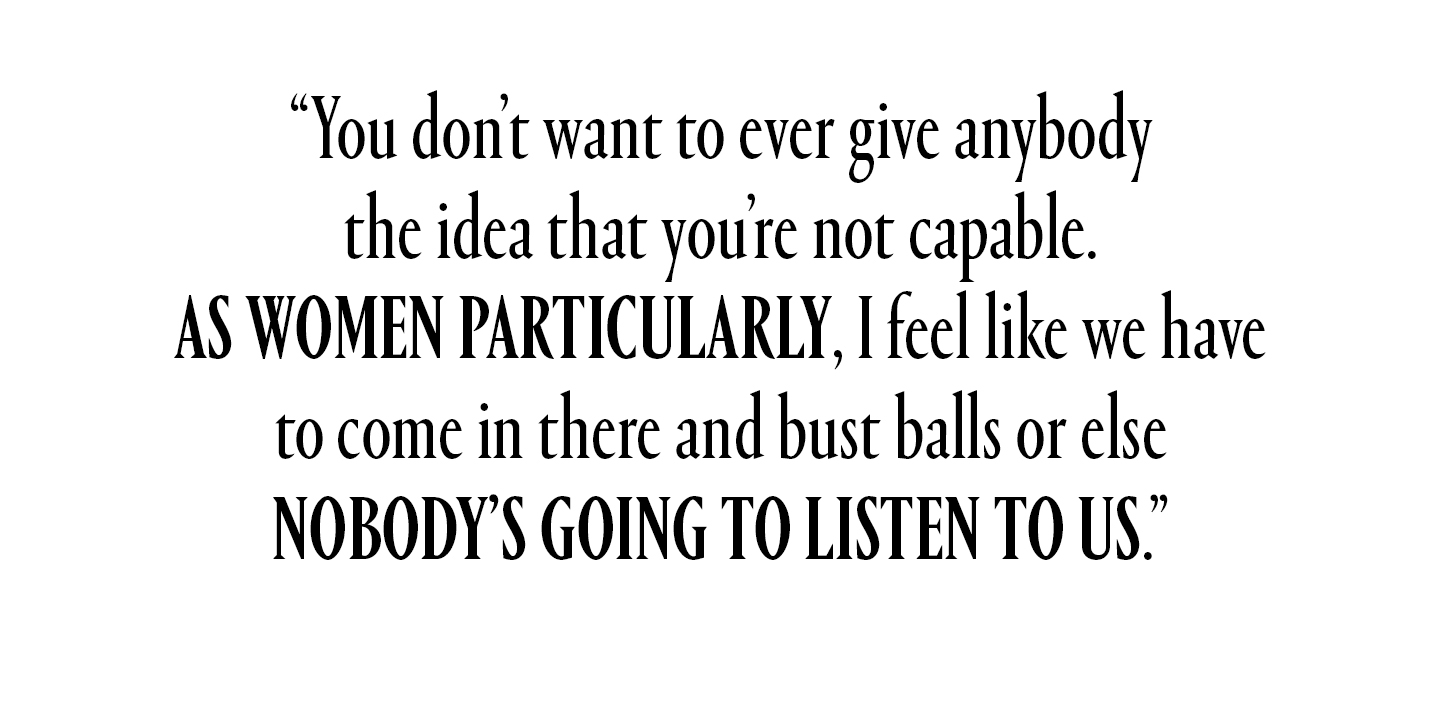
If you don’t follow any of the incomprehensible finance-speak that thrums through every episode of Industry, fret not: Myha’la doesn’t either. “Honest to God, I tried to understand it one time, and I was like, fuck this. I've never felt more stupid in my life.”
It’s real-life money that Myha’la understands, intimately. For instance, she knows you can be a star of a buzzy HBO show, act in a critically-acclaimed Netflix movie (last year’s Leave the World Behind), be seated at the Loewe Fall Winter 2023 show in Paris, and still have to put several thousands of dollars of rent on a credit card, because a major studio hired you to work in LA and they won’t front your living expenses. “It's really disheartening,” she said of the financial precariousness of the entertainment industry.
As excited as she is about her new engagement to Rivera, she’s hesitant to commit to a wedding date because she’s scared to block out time in her calendar where work could go. “I would love to say that I'm financially secure enough to be like, ‘Yeah, I'm going to say no to a job,’ but that's just not the case.” Not to mention the cost of the event itself. “I'd rather buy property first and then pay for a wedding.” She later adds, “and we live in New York, so God knows when or if that’s ever going to happen.”
“Of course,” she says with a wide smile, “I'm very much manifesting being a very wealthy person, every day.”
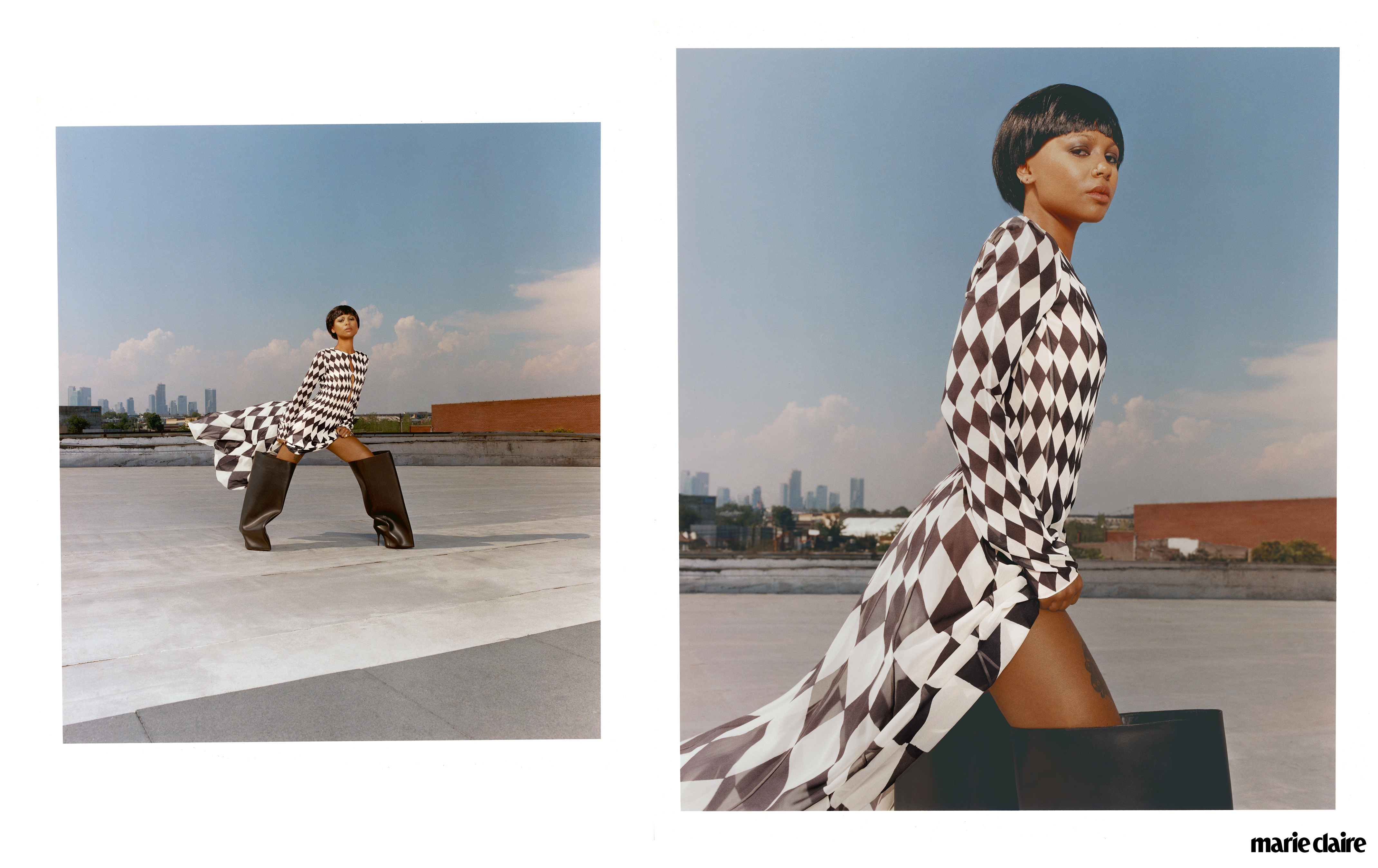
Altuzarra dress; Balenciaga boots
En route to those riches, she has other big dreams. A lifelong theater kid—she went to the Jimmy Awards in 2013, played Nabulungi in a 2017 national tour of Book of Mormon, and studied musical theater at Carnegie Mellon—Myha’la wants to be on Broadway. (“That will heal my inner child.”) She wants to have at least one kid, to experience what she believes will be a transcendent, shattering kind of love. (“I can’t wait to rip my heart out of my chest and give it to you,” she imagines saying to her future baby.)
As Harper, Myha’la embodies someone whose sense of morality seems to be rooted in whatever is most expedient at the moment. But in her off-screen life, Myha’la is “a very justice-driven human being” whose posts calling for a ceasefire in Gaza are pinned to the top of her Instagram profile. “I've been concerned that I'm going to lose a job opportunity” for speaking out on Gaza, she says. “I'm sure that I already have.” Still, she feels compelled to do so. “As a multi-minority human being, I just feel like if I'm going to be loud about my own injustices [at] home, if it touches me in another place in the world, I feel obliged to express myself.”
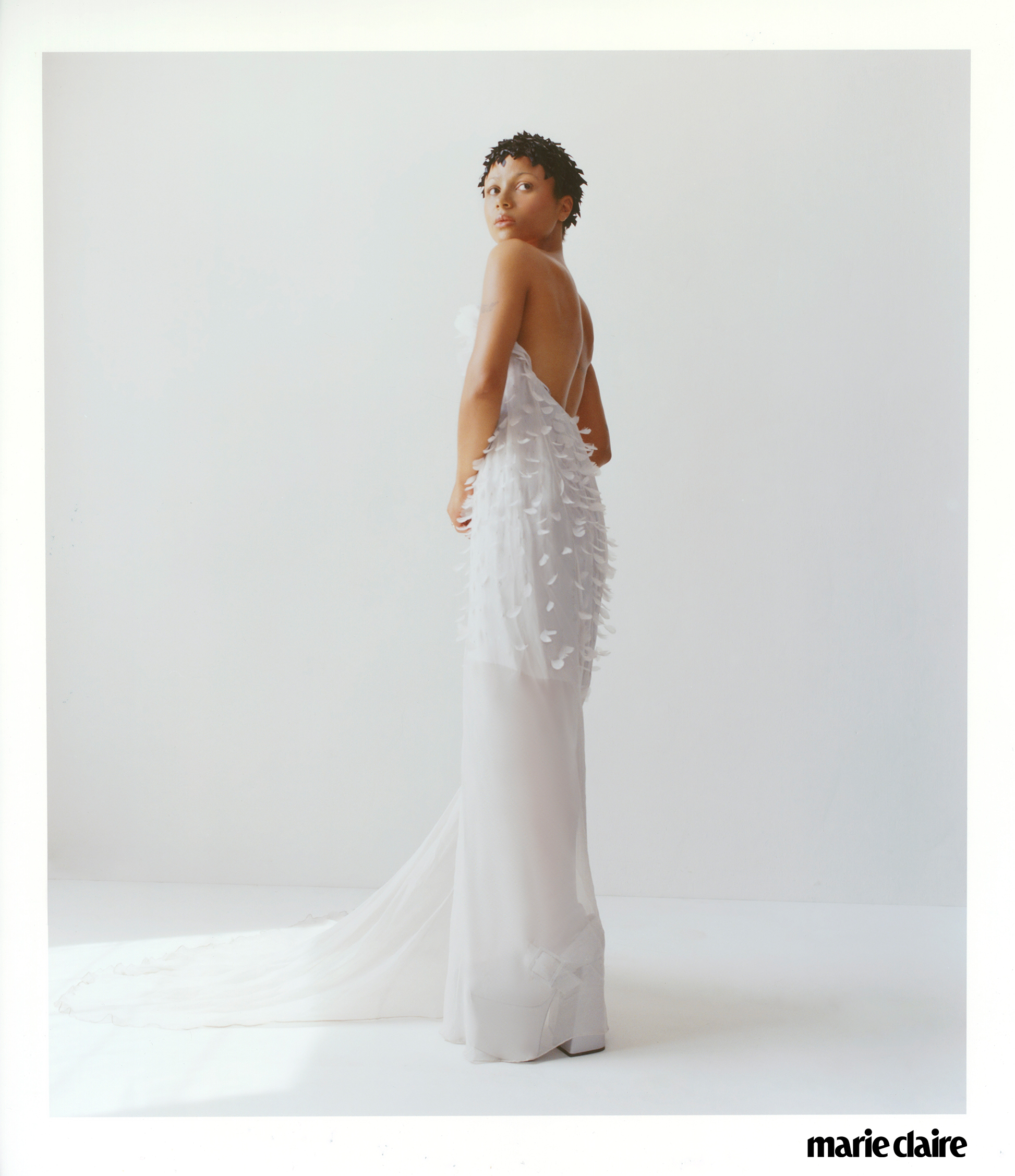
Givenchy dress; Cody Ainey hat; Roker Palmer shoes
![“As a multi-minority human being, I just feel like if I'm going to be loud about my own injustices [at] home, if it touches me in another place in the world, I feel obliged to express myself.”](https://cdn.mos.cms.futurecdn.net/vN26irzyxuu9K9goYtVbJX.jpg)
Amid so much tumult, Myha’la tries to protect the time and space to nourish herself, to be with her man, her mom, and her cats, Siamese sisters named Natalia and Bang Bang who look uncannily like the mean girl cats from Lady and the Tramp. After a brutal run of gut issues, Myha’la consulted her tarot-card-reading medium to “ask my ancestors” to heal her; she was told to “focus on detoxing.” So Myha’la cut out gluten and sugar and almost all dairy and she got into cooking for herself; she’s “currently trying to perfect this skillet cornbread recipe” from LA restaurant, Manuela.
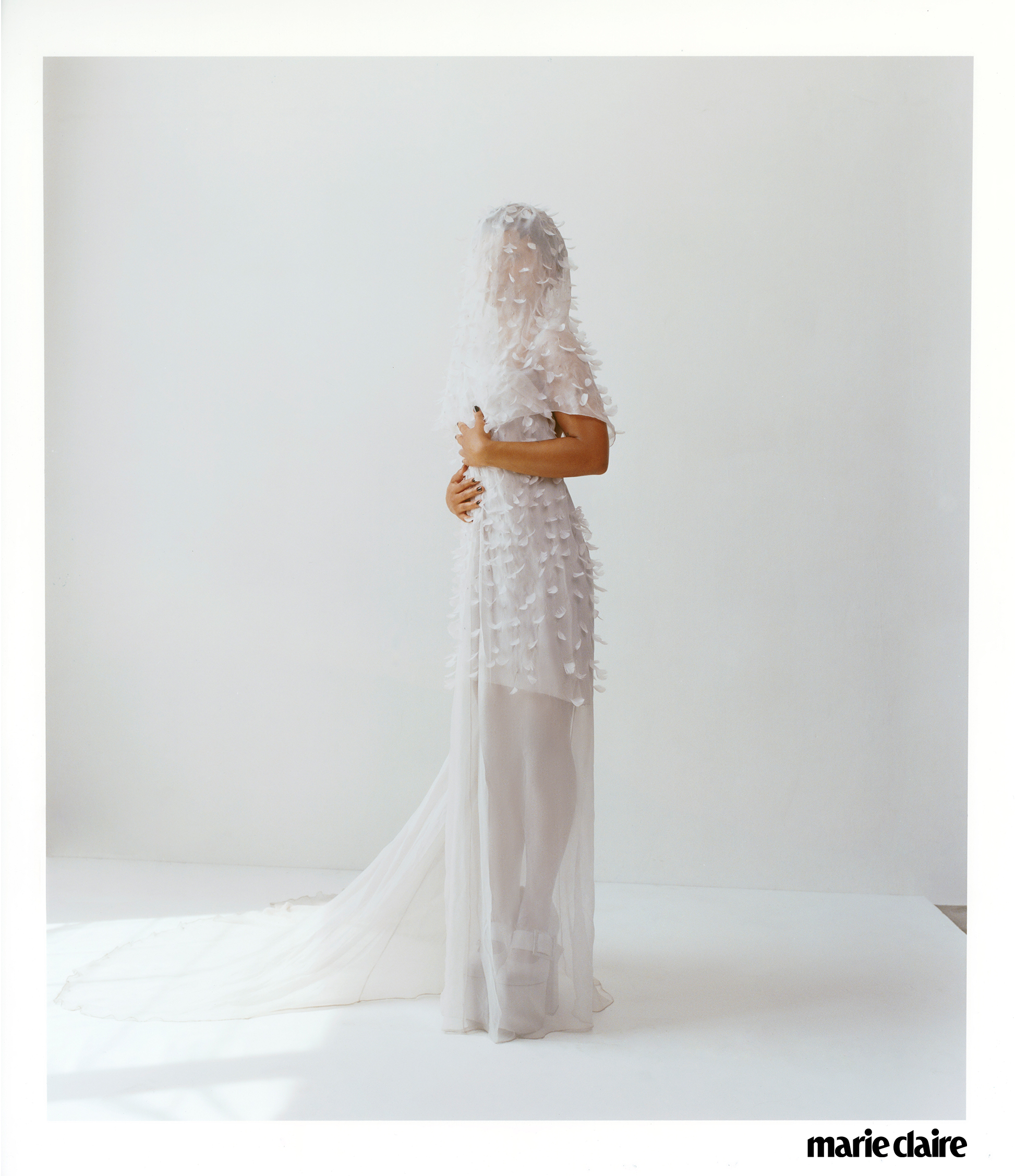
She’s also been “basically sober for a year and change,” since she never really liked alcohol, “and you can't do drugs casually…I think I've just grown out of it.” Harper would probably disagree—not to mention, it’s a very off-trend take for Brat summer, but Myha’la promises she’s still participating: “I love a cheeky cigarette.”
Though she has big visions for her future, she’s open to all the possibilities she hasn’t even considered. Take her engagement: Myha’la never saw herself as the marrying kind. But then came Rivera.
As soon as they met in person, Myha’la says, “it was one of those things where we were like, ‘Yeah, we're going to be together for the rest of our lives.’” Marriage “is special to him, and so it became special to me.” He proposed to her in the doorway of their apartment, just days before our interview; they exchanged matching sterling silver rings procured from vintage shops. “I tried on some sparkly things, diamonds, and it just didn't feel right on my body,” she says.
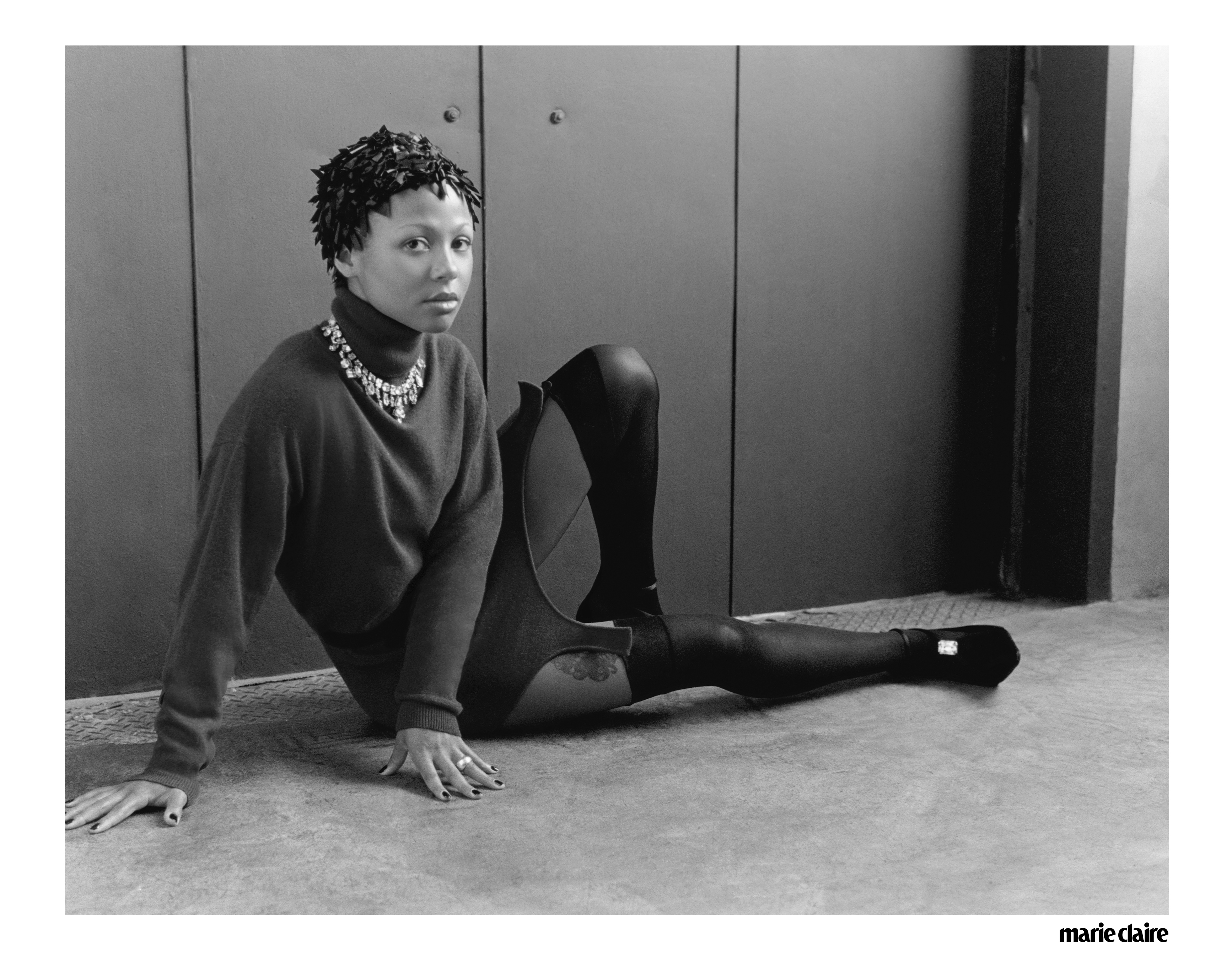
Saint Laurent by Anthony Vaccarello top, tights, and shoes; Cody Ainey hat; Rabanne necklace
She feels most grounded with the people she loves. At her insistence, her mom recently sold their northern California home and moved to New York, so now they see each other most days. During Myha’la’s last visit to her childhood home—all the walls painted white for resale, every room devoid of furniture—she says she didn’t feel sadness. Instead, “It just felt like a very seismic shift happened.”
Knowing she was no longer linked to the place where she grew up gave her an intense sense that her future was arriving, or was maybe already here. “Oh, something is changing,” is how she describes the feeling. “I’m going to the next phase of my life now.”
This story appears in the 2024 Changemakers Issue of Marie Claire.
Photographer: Andy Jackson | Stylist: Aryeh Lappin | Makeup Artist: Shyanna Lundi | Hair Stylist: Cody Ainey
Jessica M. Goldstein is a freelance writer covering all things culture. Her debut novel, RETRO, is coming out from Ballantine Books in 2026. You can read her in The New York Times, Vulture, McSweeney's Internet Tendency, and more.
